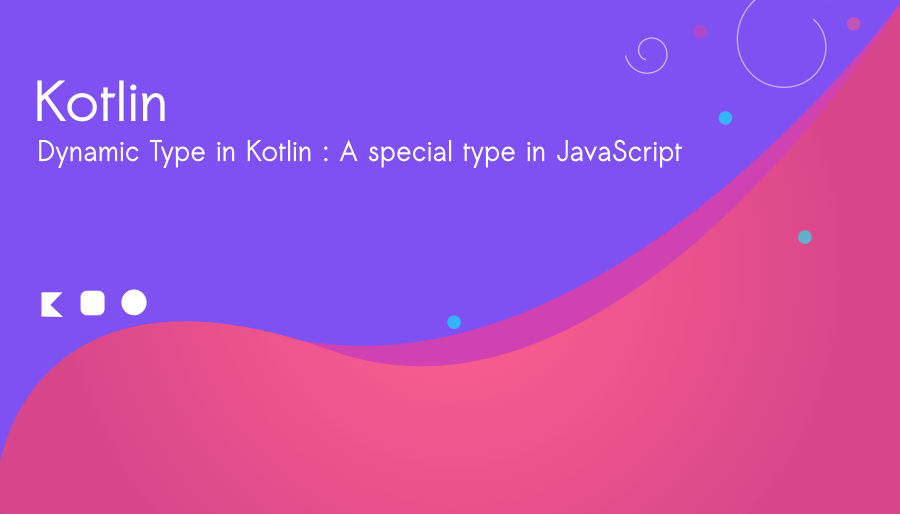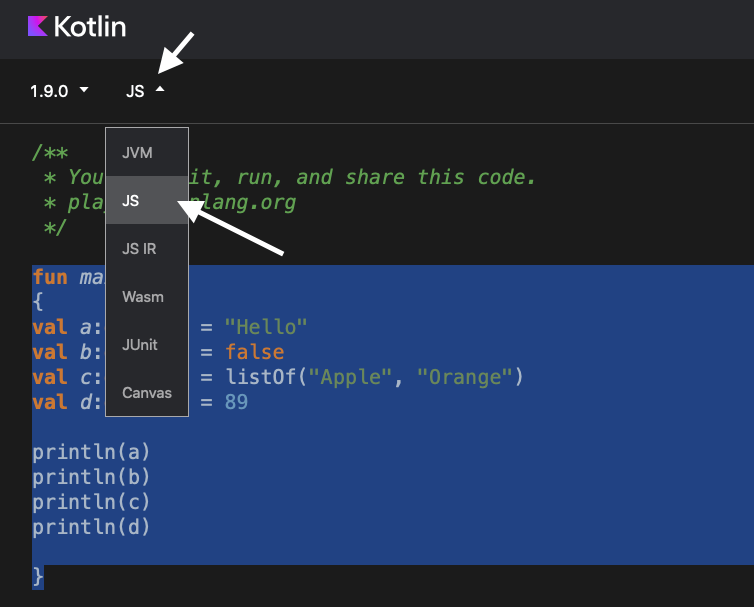Dynamic Type in Kotlin : A special type in JavaScript
Kotlin has many modern language features, and one of the key features is its dynamic type, which helps to handle variables with different types or when the actual type is not known.This type that enables developers to work with dynamic data efficiently. In this Kotlin tutorial, we will explore Dynamic Type in Kotlin, its benefits, and some best practices for using it effectively.

Understanding Dynamic Type in Kotlin
In Kotlin, this type feature empowers developers to work with data in a type-safe manner without specifying a particular data type during compile-time. Unlike statically-typed languages that perform data type checks at compile-time, Kotlin’s Dynamic Type defers this process to runtime. Consequently, you can easily assign and manipulate various data types within a dynamic variable without the need to explicitly declare its type.
To use this data type, you need to define a variable with the ‘dynamic‘ keyword. For example:
val a:dynamic = "Hello"In the above example, ‘a‘ can hold any data type, such as integers, strings, objects, or even functions. The Kotlin compiler will not perform strict type-checking on this variable, but the underlying runtime environment will handle type resolution during execution.
Open Kotlin playground and write the following program:
fun main()
{
val a:dynamic = "Hello"
val b:dynamic = false
val c:dynamic = listOf("Apple", "Orange")
val d:dynamic = 89
println(a)
println(b)
println(c)
println(d)
}Hello
false
[Apple, Orange]
89Note : Change the program environment to JS from drop down list.

Let’s use dynamic in function
fun plus(num: dynamic) = num +1
fun main()
{
val addNumber = plus(6)
println(addNumber)
}
fun plus(num: dynamic) = num +1 Output
7
Benefits of Kotlin’s Dynamic Type
Interoperability
Dynamic Type allows Kotlin code to interact seamlessly with JavaScript code. This feature is particularly valuable for developers working on multi-platform projects or building applications with Kotlin/JS. It enables smooth integration with JavaScript libraries and frameworks, expanding the range of available tools and resources.
Handling External Data
When working with external data sources like APIs or databases, the data’s format or structure might change over time. Dynamic Type provides a convenient way to handle such uncertainty and adapt to changes dynamically.
Dynamic Type in Kotlin is a potent feature that adds a layer of flexibility and adaptability to your codebase. It enables seamless interactions with JavaScript, empowers reflection and DSLs, and allows for dynamic behavior in various scenarios. However, with great power comes great responsibility. Exercise caution when using Dynamic Type, and follow best practices to maintain code robustness and readability.



